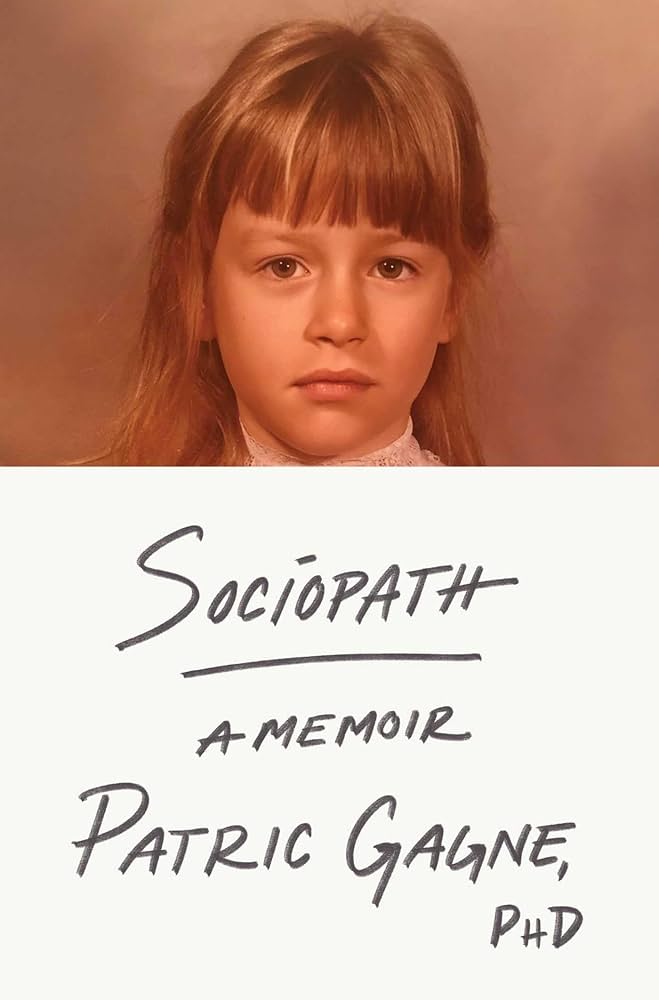
A provocative memoir that invites empathy, raises red flags, and keeps you arguing with yourself long after the final page
Patric Gagne’s Sociopath arrives with a bold premise: an inside account of life as a self-identified sociopath who is determined to live harmlessly and to destigmatize a highly maligned label. The result is a brisk, cinematic memoir that is both compulsively readable and maddeningly slippery. It sparks debate about diagnosis, identity, and the stories we choose to tell about ourselves, even as it leaves significant scientific and ethical questions unanswered.
What the book does well
On a narrative level, Sociopath moves. Gagne sketches her childhood sense of difference, the thrill seeking that filled the emotional void, and the painstaking social performance she adopted to pass as typical. Her stated aim is not to shock but to reframe the public’s reflexive fear. She argues that people who fit, or think they fit, the sociopathic profile can still choose nonviolence, can love in their own register, and can contribute meaningfully to family and community.
This is where the book succeeds most: it pushes readers to interrogate their biases. One reviewer captured this tension perfectly by admitting that the book made him question whether he was holding this memoir to a stricter standard because of the very label it explores. Whether or not you accept Gagne’s self description, the narrative nudges you into uncomfortable, useful self audit.
The major caveats
Several recurring critiques deserve attention if you are considering Sociopath for insight rather than story.
First, the science is thin. Readers looking for citations, defined terms, or even a basic grounding in DSM criteria will not find much. The text uses the word sociopath as an identity more than a diagnosis, and there is little engagement with research on antisocial personality disorder, psychopathy assessment, or adjacent constructs like alexithymia. Some reviewers argue that what Gagne describes maps more closely to autism with alexithymia than to sociopathy, a claim the book never seriously entertains.
Second, the reconstruction problem. The memoir frequently presents fully scripted scenes and dialogue from early childhood through adulthood. That choice gives the book verve, but it also strains credibility and makes the project feel TV ready rather than rigorously reflective. When timelines and conversations feel engineered for effect, readers start to wonder what is reportage and what is narrative gloss.
Third, credential questions and framing. The cover signals academic authority, yet readers have raised concerns about the author’s training and scholarship. More important than résumés is the book’s tendency to define sociopathy as whatever fits the author’s self understanding in the moment. The anchor drifts, which weakens the central thesis.
Gray zones that make the book worth discussing
Even with those concerns, Sociopath accomplishes something rare for a mainstream memoir about a stigmatized identity. It makes space for complicated reactions. You may bristle at the glamorized trespassing and voyeurism, then notice the consistent line Gagne draws against physical harm. You may doubt the label, then recognize how labels themselves can shape behavior, community, and access to care. You may dislike certain self-exculpatory passages, then find yourself asking whether you would demand the same contrition from a different kind of neurodivergent narrator.
In that sense, the book is less a definitive statement on sociopathy and more a case study in how stories organize the self. It demonstrates how a single word can become both a shield and a trap. It shows how performance can be survival, and how survival can harden into performance.
Audiobook note
If you listen on audio, Gagne narrates the book herself. Some listeners appreciated the immediacy of hearing the story in her voice, while others found the character voices distracting. Your mileage may vary depending on tolerance for dramatized delivery.
Who should read this
- Readers interested in identity narratives that sit at the intersection of psychology, stigma, and self invention
- Book clubs that enjoy debate friendly nonfiction with clear lines of disagreement
- Memoir fans who value propulsive storytelling over clinical rigor
If you want evidence based psychology, you will likely be frustrated. If you are open to an argument starter rather than a final word, Sociopath is an engaging pick.
Verdict
3.5 out of 5. Gripping, provocative, and conversation ready, yet light on science and heavy on reconstructed drama. Read it to test your assumptions and to explore the power and pitfalls of a personal label, not as a primer on sociopathy.
Ready to read it and decide for yourself
Buy Sociopath on Amazon: https://amzn.to/4gZOwZo


